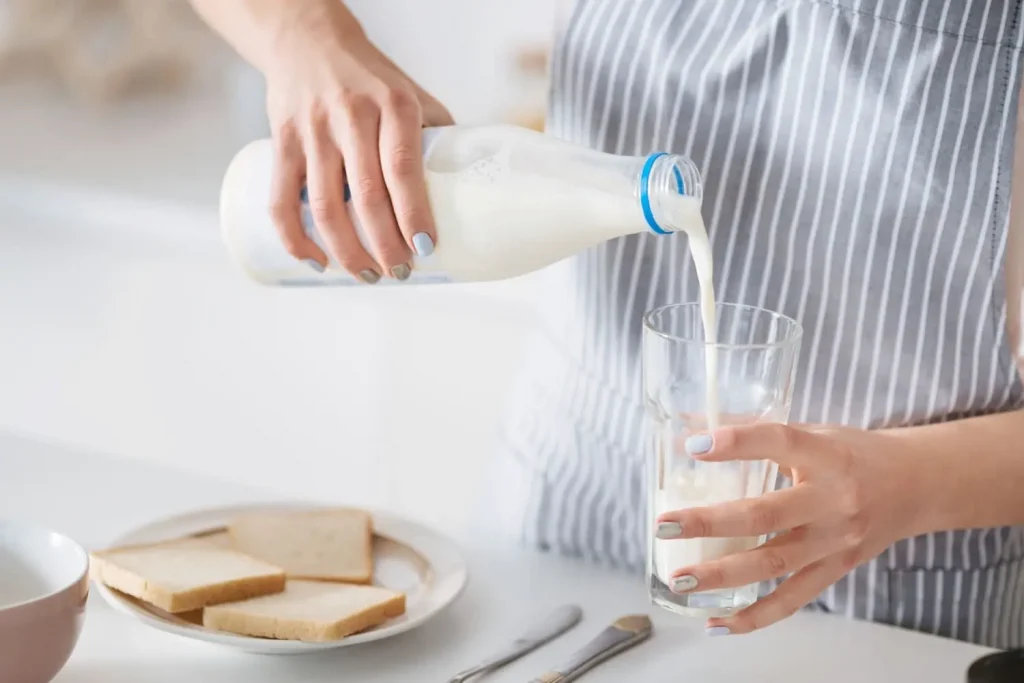In daily life, who hasn’t felt the urge to indulge in something sweet? This phenomenon is known as sugar craving, a strong desire to consume foods or drinks high in sugar.
Although sometimes considered common, sugar craving can pose a challenge for many individuals in maintaining a healthy diet. Often, the desire for sweet foods comes suddenly and is difficult to resist.
To understand this phenomenon, it’s important to understand the causes of sugar craving, strategies to use when the craving strikes, and long-term solutions to manage and reduce tendencies toward sugar craving.
What is Sugar Craving?
Sugar craving is a psycho-physiological phenomenon involving a strong urge to consume foods or drinks high in sugar. The term encompasses a strong desire to consume various sweet foods, such as chocolate, cakes, ice cream, or soda. This sensation often arises suddenly and can be a challenge for individuals, especially those trying to maintain a healthy diet.
For some people, sugar craving isn’t just about wanting to enjoy something sweet, but also reflects a complex relationship between physiological needs and emotional responses to food.
Causes of Sugar Craving
The main causes of sugar craving involve a complex interaction between physical and psychological factors.
Physically, consuming sugar triggers neurochemical responses in the body, particularly in the brain. When sugar is consumed, the brain releases neurotransmitters like dopamine, known as the “feel-good chemical.” Dopamine produces feelings of comfort, which reinforces the desire to consume more sugar. This response is largely associated with the brain’s reward system, where the brain learns to associate sugar consumption with positive experiences.
In addition, emotional factors also play a role in sugar craving. Stress, anxiety, or other negative feelings can trigger psychological reactions that increase the desire to seek comfort through sweet foods. This often occurs because sweet foods are seen as a reward or consolation in coping with emotional pressure. Over time, the relationship between emotions and sugar consumption can become stronger, creating a cycle that’s difficult to break.
The combination of physical and psychological factors creates an environment conducive to sugar craving. However, it’s important to remember that experiences and responses to sugar craving can vary, influenced by various factors including genetics, eating habits, stress levels, and other environmental factors.
What to Do When Sugar Craving Strikes?
When facing sugar craving, it’s important to take appropriate steps to overcome the urge.
Here are the steps you can take:
1. Recognize the Source of Hunger
First things first, it’s important to recognize whether the hunger you feel is truly caused by nutritional needs or just an emotional response to stress or anxiety. Understanding the origin of hunger can help you determine your next steps.
2. Choose Quality Foods
If hunger is caused by nutritional needs,choose foods that are rich in nutrients and low in sugar. Prioritize consuming foods high in fiber, protein, and healthy fats to meet your body’s needs without causing spikes in blood sugar.
3. Manage Stress Well
If you’re experiencing sugar craving due to emotional factors, it’s important to develop effective stress management strategies. Meditation, exercise, or other relaxation activities can help reduce the desire to seek comfort through sweet foods.
4. Find Distractions
When the desire to eat sweet foods arises, find positive and productive distractions. For example, engage in hobbies or enjoyable activities, or reach out to friends to talk.
Solutions to Sugar Craving
To avoid falling into the trap of sugar craving continuously, these are several solutions you can apply:
1. Gradually Reduce Sugar Intake
The first step you can take is to gradually reduce sugar intake. Start by reducing added sugars in your foods and drinks, such as sugar in coffee or tea, and avoid foods high in sugar such as candy, cakes, or soda. By gradually reducing sugar intake, your body will become accustomed to a less sweet taste, and the desire to eat sweet foods may decrease.
2. Consume Foods Rich in Fiber, Protein, and Healthy Fats
It’s also important to pay attention to the types of foods you consume. Make sure to consume foods rich in fiber, protein, and healthy fats such as fruits, vegetables, nuts, lean meats, and low-fat dairy products. These foods not only provide essential nutrients for the body but also help maintain stable blood sugar levels and reduce sugar craving symptoms.
3. Be Mindful
Stay aware of your body’s needs and listen to the signals it gives. If you feel hungry, try to evaluate whether it’s a desire to eat something sweet or a genuine nutritional need. By increasing self-awareness of eating patterns and body responses to food, you can more easily control sugar craving.
Arummi Cashew Milk – Healthy Beverage Choice for Sugar Craving
When facing sugar craving, choosing a healthy beverage can be a great balance. One option worth considering is Arummi Cashew Milk.
Made from high-quality cashews rich in protein, fiber, healthy fats, vitamins, and minerals, Arummi Cashew Milk can provide a delicious taste while also helping to meet daily nutritional needs.
With lower sugar content than other sweet beverages, Arummi Cashew Milk is a good alternative when dealing with sugar craving.
Get yours at your nearest supermarket now!









































